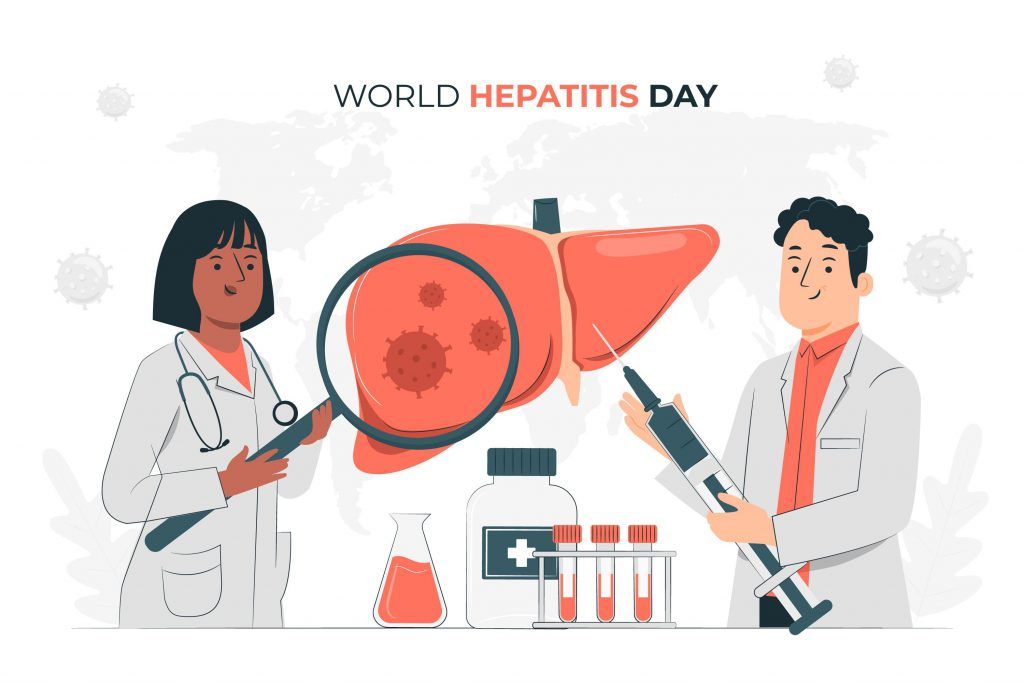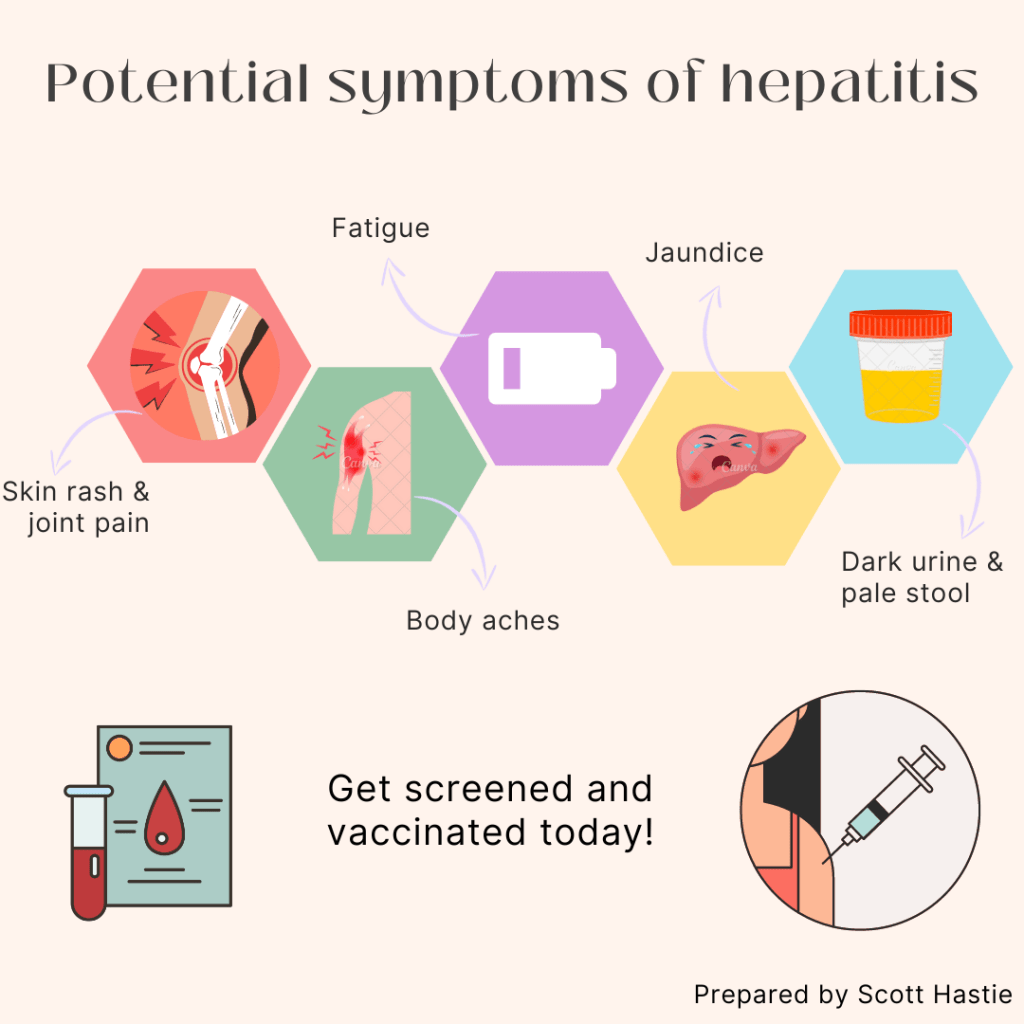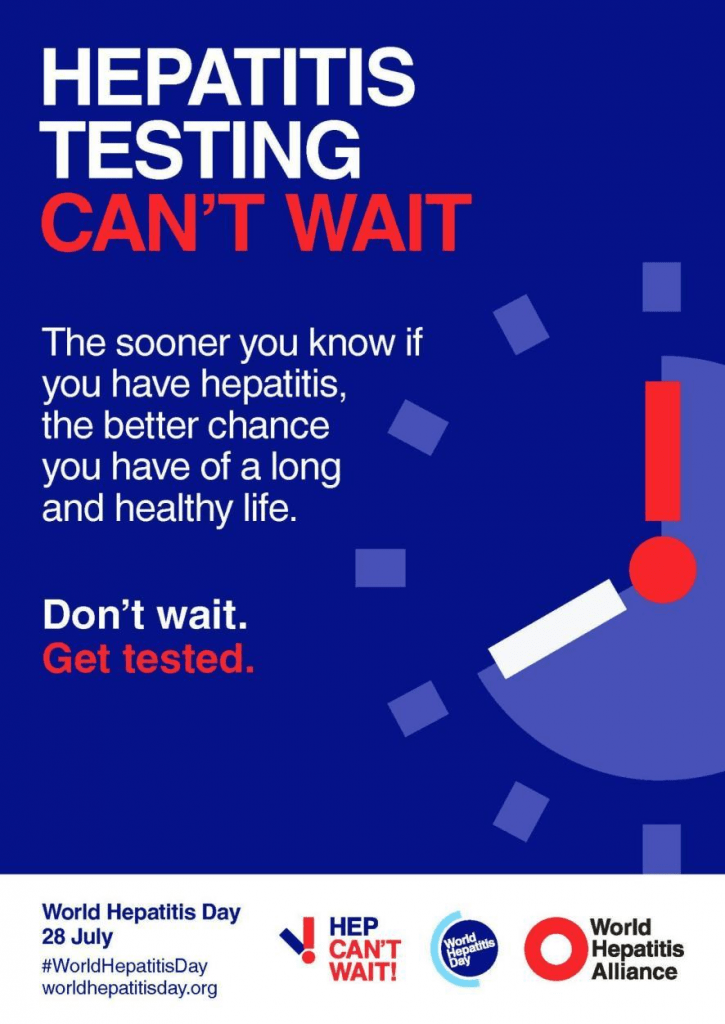What Should You Know About This Disease
26 July 2023 | Article is written by Scott David Hastie (nutritionist) and Tan Jun Er (dietician)

Source: Freepik/storyset
About World Hepatitis Day
Viral hepatitis is a major global health problem, resulting in more than one million deaths each year. World Hepatitis Day is observed annually on 28 July to raise awareness of the disease and to promote prevention, diagnosis, and treatment. The date of 28 July was chosen in honor of Nobel Prize-winning scientist Dr. Baruch Blumberg, who discovered the hepatitis B virus (HBV) and developed a diagnostic test and vaccine for the virus.
What is hepatitis?
The liver is a vital organ that processes nutrients, filters the blood, and fights infections. When the liver is inflamed or damaged, its function can be affected. Heavy alcohol use, toxins, some medications, and certain medical conditions can cause hepatitis. However, hepatitis is often caused by a range of infectious viruses and non-infectious agents which can sometimes lead to cirrhosis and even cancer.
Types of hepatitis
There are 5 main hepatitis viruses, referred to as types A, B, C, D and E. In particular, types B and C lead to chronic disease in hundreds of millions of people and, together, are the most common cause of liver cirrhosis and cancer.
Infection route
Hepatitis A and E are typically caused by ingestion of contaminated food or water. Hepatitis B, C and D usually occur as a result of parenteral contact with infected body fluids. Common modes of transmission for these viruses include receipt of contaminated blood or blood products, invasive medical procedures using contaminated equipment. Common mode of transmission for hepatitis B would be from mother to baby at birth, from family member to child, and also by sexual contact.
Acute infection may occur with limited or no symptoms, or may include symptoms such as jaundice (yellowing of the skin and eyes), dark urine, extreme fatigue, nausea, vomiting and abdominal pain.

Symptoms of Hepatitis
Symptoms of hepatitis may include but are not limited to:
- Skin rash and joint pain
- Nausea and vomiting
- Fever and chills
- Fatigue
- Body aches
- Pain at upper right side of abdomen
- Jaundice
- Dark urine
- Pale stool
Guidelines for hepatitis carriers
- Do not donate blood
- Do not share personal items which may breach the skin barrier. Ie: razors, toothbrushes, nail clippers, earrings, etc.
- Ensure your sexual partner is immunized, or use protection.
- Inform your doctors that you are a carrier, especially in cases of pregnancy or undergoing surgery.
- Regular blood screening every 6 – 12 months.
Importance of regular screening
Testing and diagnosis of hepatitis infection is the gateway for access to both prevention and treatment services. Early identification of persons with chronic hepatitis infection enables them to receive the necessary care and treatment to prevent or delay progression of liver disease.
Screening tests on Hepatitis A,B and C are provided by BP Healthcare as part of the Specialist Head2Toe health screening package. The test specifically involves analyzing blood samples to detect quantities of antibodies, indicating the presence of hepatitis virus.

Source: www.worldhepatitisday.org
In line with this year’s slogan “Hepatitis Can’t Wait” , it is critical to emphasise the significance of hepatitis screening for early detection and timely care in the fight against hepatitis.
